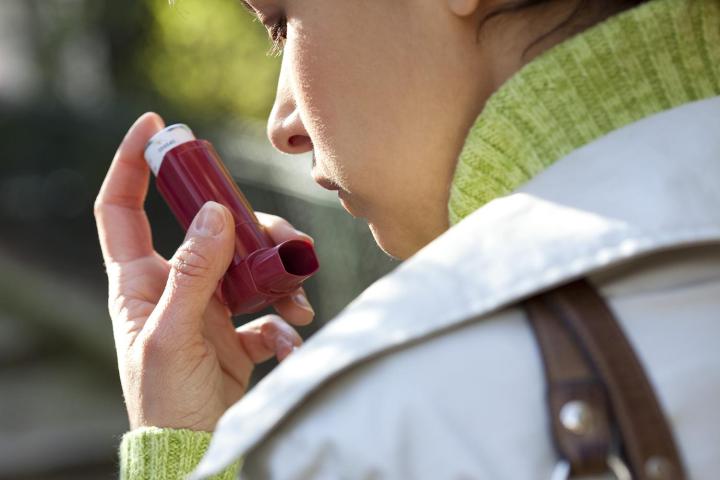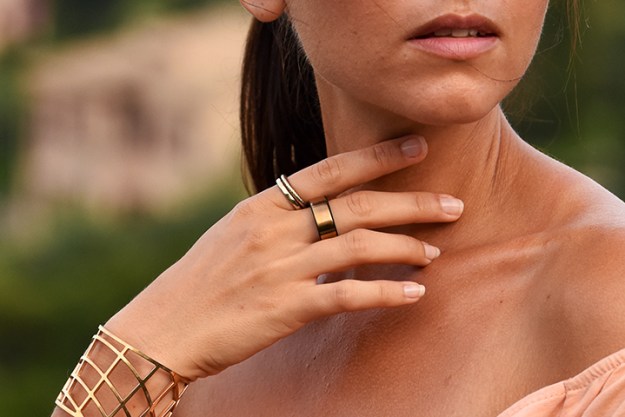
About 300 signed up.
But apps based around the newly unveiled ResearchKit — such as the Asthma Health app, a joint effort of Mount Sinai Icahn School of Medicine and LifeMap Solutions, a subsidiary of biotech company BioTime — are transformational. Eric Schadt, a professor of genomics at the Icahn School who spearheaded the collaboration, defines it as a pivotal moment in medical research.
Metaphorically speaking, it’s like having a doctor in your pocket.
“That’s the way the old system worked,” Schadt told Digital Trends. “[With the app] over 3,500 people consented and enrolled in our research study in less than 72 hours! It would have taken us years to get 3,500 people enrolled the traditional way.”
Thanks to the new software, an iPhone in your pocket is not just a smartphone but a potent medical device, which not only can count your calories, but can make you a part of a clinical study. Have asthma and want to contribute to its research? Download the new Asthma Health app and you don’t have to go to a hospital or a medical office for scheduled check-ups. You can partake from your couch. Or your treadmill. Or your bed. For free.
Developed within the framework of Apple’s ResearchKit, Asthma Health aims to revolutionize the way clinical studies are done. The app has multiple uses. On one hand, it teaches patients to self-monitor and stick to their treatment plans. “A message will pop up and say, ‘you set up your reminder for 5pm–-did you use your inhaler?’” says Yu-Feng Yvonne Chan, director of personalized medicine and digital health at Icahn Institute at Mount Sinai. When users tap the screen to confirm they’re in compliance, they get a smiley face, which Chan says should “promote positive behavioral changes and adherence to treatment plans.”

On the other hand, Asthma Health can track patients’ symptoms, flare-ups, and the triggers that cause them, sending all that info to a database so researchers can devise personalized treatments. In the future, if a patient has a flare-up on a particular date in a particular location, the software would analyze the GPS data, weather, air quality, and other factors to identify a probable cause. “We would note the triggers on this particular date—heat, humidity, or source of pollution,” Chan says. “We would see patterns emerging and hopefully would provide patents with personalized feedback—such as ‘you are sensitive to this location, try to avoid it.’”
The app won’t replace medical care, and won’t eliminate the need to visit doctors entirely, Chan adds, but it aims to move away from the traditional one-size-fits-all medical care to a personalized treatment plan. “This is in stark contrast to how wellness in individuals is tracked today by the health system, where perhaps you actually talk to a physician for 10 minutes in the course of one year,” says Schadt. Metaphorically speaking, it’s like having a doctor in your pocket. “The treatment regiments can be confined within your app,” says Corey Bridges, CEO of LifeMap.
The asthma study is limited to the U.S., but future ones ‘can reach all the corners of globe.’
The launch revolutionizes how clinical studies are done, who can join them, and from where, Bridges says. Geography and distance matter no more. The asthma study is limited to the U.S., but future ones “can reach all the corners of globe,” Chan notes. Anybody with an iPhone anywhere in the world would be able to throw their own symptoms and triggers into the big data research pool.
“The aim is to take all of the data being collected on individuals through the apps and to integrate those data with the digital universe of data in order to build better models of disease and wellness,” says Schadt.
Schadt began working on the “digital health agenda” when he joined Mount Sinai about three years ago. “I knew we didn’t have the type of expertise in house to develop really effective digital health apps,” he says, so he began looking at information technology firms. He partnered up with BioTime, which resulted in the launch of LifeMap Solutions. Asthma Health is one of five apps that share the same ambitious goals of revolutionizing medical research. The other four apps, developed by several leading medical institutions, include GlucoSuccess, which aims to analyze how diet, exercise, and meds affect blood sugar; MyHeart Counts, which targets cardiovascular health; mPower, which lets Parkinson’s patients track their symptoms; and Share the Journey, which will examine why some breast cancer patients fare better than others.

Bridges sees app-based studies as a natural progression of the Internet phenomenon. After the retail, music, movies, and education industries went online, medical apps should eventually go viral too. Schadt is excited about how quickly patients are signing up. “Research into complex diseases is changing before our very eyes!”


